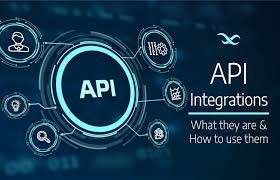
As a freelancer, it’s crucial to choose the right tools and technologies for your projects. When it comes to web development, two popular options are WordPress and Bootstrap. Both platforms offer unique features and benefits that can help you deliver high-quality websites to your clients. This article compares WordPress and Bootstrap, highlighting their strengths and use cases, to help you make an informed decision for your freelance gigs.
1. WordPress: WordPress is a content management system (CMS) that powers millions of websites worldwide. It provides a user-friendly interface and a vast ecosystem of themes, plugins, and extensions, making it highly customizable and flexible. Here are some key points to consider: – Ease of Use: WordPress is known for its user-friendly interface, allowing even non-technical users to build and manage websites efficiently. – Content Management: WordPress excels in content management, with robust features for creating, organizing, and publishing various types of content, such as blog posts, pages, and multimedia. – Extensibility: The availability of thousands of themes and plugins enables extensive customization and functionality enhancements for WordPress websites. – Community Support: WordPress has a large and active community, offering support, tutorials, and resources for developers and users. – SEO-Friendly: WordPress provides built-in SEO features and plugins that can help optimize websites for search engines.
2. Bootstrap: Bootstrap is a popular front-end framework for building responsive and mobile-first websites. It offers a collection of pre-designed components, CSS styles, and JavaScript plugins, making it easier to create visually appealing and responsive web pages. Here are some key points to consider:
– Responsive Design: Bootstrap provides a responsive grid system and components, ensuring that websites look and function well across different devices and screen sizes.
– Rapid Prototyping: Bootstrap offers a wide range of ready-to-use components and templates, allowing developers to quickly prototype and build websites with consistent styling.
– Flexibility: Bootstrap’s modular and customizable nature enables developers to tailor the framework to their specific project requirements. – Cross-Browser Compatibility: Bootstrap ensures cross-browser compatibility, reducing the need for extensive testing and optimizing websites for different browsers.
– Community and Documentation: Bootstrap has an active community that provides support, resources, and regular updates, making it easy to find help and stay updated on best practices.
Comparing WordPress and Bootstrap: When deciding between WordPress and Bootstrap for freelance gigs, consider the following factors:
1. Project Complexity: WordPress is suitable for a wide range of projects, from simple blogs to complex e-commerce websites. Bootstrap is primarily focused on front-end development, making it ideal for projects that require custom designs and responsive layouts.
2. Customization: WordPress offers extensive customization options through themes and plugins, allowing you to create unique website designs. Bootstrap provides a solid foundation for custom designs but may require more coding expertise for advanced customization.
3. Content Management: If your project involves content-heavy websites, WordPress excels in providing robust content management features out of the box.
4. Development Speed: Bootstrap’s pre-built components and templates can significantly speed up the development process, making it suitable for projects with tight deadlines or rapid prototyping needs.
5. Client Requirements: Consider your client’s specific needs and preferences. Some clients may already have a preference for WordPress due to its popularity and familiarity, while others may require custom designs that align better with Bootstrap’s flexibility.
Conclusion: Both WordPress and Bootstrap offer valuable tools for freelance web development gigs. WordPress is a versatile CMS with a vast ecosystem, making it suitable for a wide range of projects, especially those focused on content management. On the other hand, Bootstrap excels in front-end development, providing responsive design capabilities and rapid prototyping features. Consider the project requirements, customization needs, and client preferences to determine the best fit for your freelance gig. Remember, the ultimate goal is to deliver high-quality websites that meet client expectations and drive success.
Ready to take your freelance web development projects to the next level? Whether you prefer the versatility of WordPress or the flexibility of Bootstrap, remember that continuous learning and improvement are essential for staying ahead in the industry. Invest time in expanding your skills and exploring new techniques to enhance your web development capabilities. Start by joining SOUTECH academy to horn your skills and deliver exceptional website.

